April 12, 2013
As shocked as San Cristóbal friends, neighbors and oft-frequented business owners were by how much the girls have grown in a year’s time, we were equally delighted to see then soon-to-be mamas now with babes in arms, nurslings now toddling and talking and school friends with longer hair, lankier limbs and toothier grins.
One unique joy (gosh, there were so many) was the running into of young street vendors still selling the same trinkets and charm as ever, only now with a bit more skill, bulkier loads and no mothers in sight.
Rosa and Estella are two such peddlers. Following their sing song sales pitch and my assurance that I didn’t need another embroidered purse or stuffed giraffe, I slowed my pace, asked their names and offered them each ten pesos for a photo. Thrilled for the diversion and attention, and each excited to have a name or age in common with my own girls, we spent the next half hour chatting in Spanish (theirs was about as good as mine), comparing English to Tzotzil and laughing hysterically over the many photos they offered to pose for. (Estella got really into it and requested hers taken in front of jewelry stores and shop windows.)
Of all the harsh realities known to this region — the cash-poorest in of all of Mexico — the absence of education and necessity for work among indigenous children has been one of the hardest for me to reckon with. When I asked if they attended school, they explained that they had already finished (Rosa is 10, Estella is 8). When I inquired as to the whereabouts of their parents, they looked confused, as if I might have known they work the streets alone, and when I mentioned siblings, they paused, accounted for them all on their fingers and indicated somewhere around 14 between them, though the word for fourteen in Spanish was not a part of their vocabulary.
Nearly three years ago, when we first moved to Mexico and I asked for (and then received) a closer look into the lives of the Chiapan Maya, sympathy, heartache and a vague sense of urgency were my first reactions to the many “problems” as I saw them. Refusing to turn a blind eye, and without any preparation for what I was getting into, I was quickly and willingly swept up in a whirlwind of emotions that, by this time last year, had me questioning anything and everything I’d ever known to be true and living each day in an exhausting state of inner turmoil.
I’ve yet to fully recount those crazy months (though you can read bits and pieces here), but in the year since then, a new story is slowly taking form in place of the tragedy I’d originally told myself. This one, based on thoughts I’ve evaluated for truth and void of quantitative judgements, has made all the difference not only in the way I think about “injustice,” but in the way I interacted with Rosa and Estella that afternoon. Sympathy was no longer my knee jerk reaction, but excitement over the possibility of a connection.
The sentiment of Arthur Ashe has come to me in a hundred different forms this year, just as it did on the grins of those girls…
In that moment, I had a new camera, a few pesos, intermediate Spanish, the heart of a mother and loads of curiosity; and whether they knew it or not, they had the spirit of youth, the freedom to trust me or not, intermediate Spanish and a wealth of tales I’d have paid hundreds of pesos to hear.
I agreed to their requests when the popsicle pushers passed, then “joked” that their teeth would fall out if they didn’t brush them when they got home. They then agreed that two popsicles in one day might be one too many and we settled on apples as a second treat.
Toward the end of our time together, I told them — not a hint of jest in my voice — that they were smart girls, that they already knew more languages and skills than most people their age and that if ever they got the chance, that they really ought to consider going back to school.
Two years ago, I would have asked myself upon parting:
Did I do enough?
Did I say the right thing?
How much could a half an hour really help anyway?
How long will their twenty pesos last?
But I’m starting to think that maybe a new set of questions might not only be more helpful with regard to matters of injustice, but as applied to every moment of our shared human experience:
Was I fully present?
Did I offer what I could in that moment?
Were my reactions rooted in love instead of fear?
Was I open to the world of possibility?
I may never see Rosa or Estella again, or who knows, maybe I’ll continue to watch them grow year after year when we visit. But whereas before I’d have simply added another chapter to the tragedy and a couple more kilos of burden to my heart, today I feel quite content when I think about my new friends — not because of how much I did, or how much things have changed, or whether I know if they’ll ever return to school, but because I can answer “yes” to those last four questions, and because we made a connection and that’s not quantifiable.
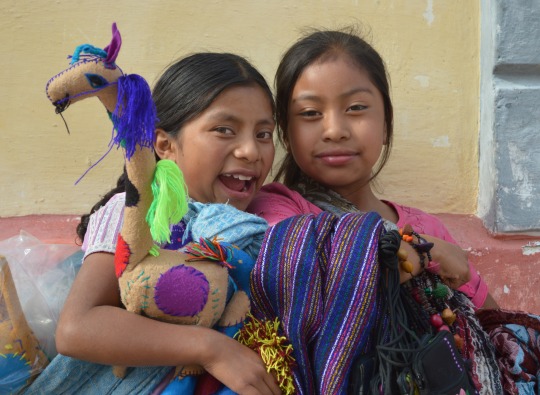
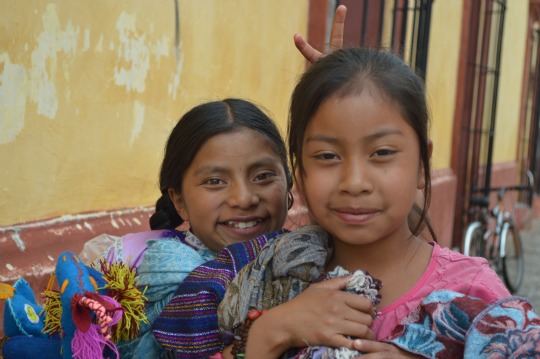
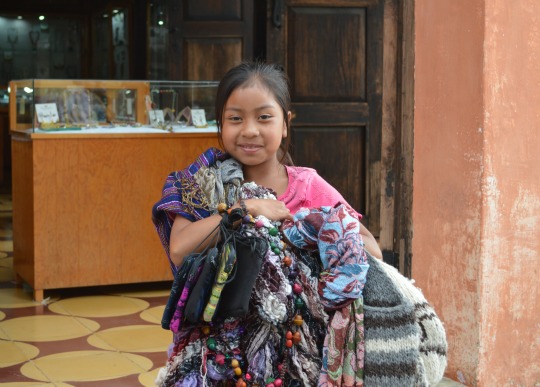
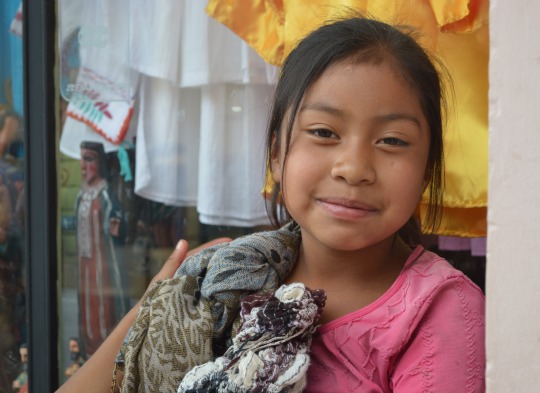
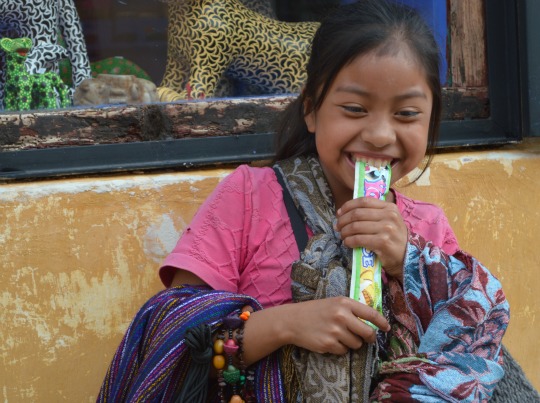

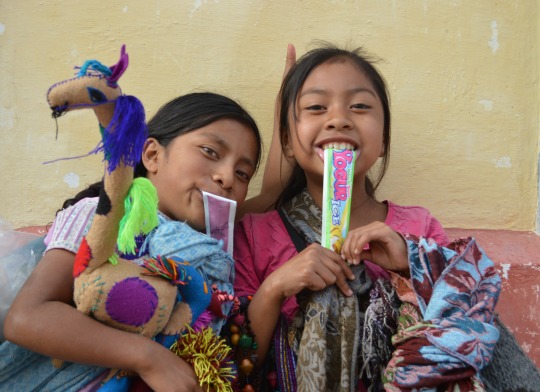
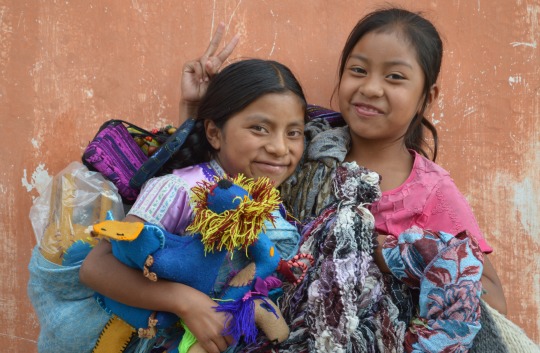
I love where this went. This is the perspective we need for everything–parenting, partnering, providing–a perspective that side-swipes fear and guilt and comes back with a grace so simple and wise it is also unexpected and utterly refreshing. Thank you.
I subscribe to quite a few blogs and there are days when I don’t get to many of them because life is too busy that day but I always read yours. So insightful, thought provoking and hopeful. Today’s was no exception. Thank you!
Wow! How much you and the girls (Estella and Rosa) have grown over these 3 years already! Absolutely top rate article and insight.
Sweet reality. No use trying to escape it.
Oh yes, Beth. What a difference in perspective and so important! It is so difficult not to judge when faced with what we consider such lack. Thank you for another wonderful blog.
lovely! obrigada!
What does obrigada mean? I’ve never seen/heard that. My best guess is that it’s related to “obra” and means something like “good work”.
Thank you, Beth, for another thought provoking post! I love this change in perspective.
This was my favorite post. I have come to love your writings. Thank you thank you!
Totally agree. Imagine what the whole world would look like if we starting thinking about the poverty of community in the US, and the wealth of human culture in indigenous areas. This has been part of my journey as well as I have learned to discard guilt and embrace happiness.
I come here for thoughtful perspective…..you never disappoint!!
Gracias!
Really good post! Thank you!
I loved every kernel of this post!
I just forwarded this post on to Georgia’s youth minister. It just struck me as a great framework for the kids as they prepare to take on missionary activities over the summer. Georgia is going to Guatemala in June with them, so for her, this will now be on her pre-trip required reading.
Years ago, Clayton and I encountered two girls in Panajachel who sold pulseras in the streets and were also all done with school. Their names were Ruta and Helena. These wise young things made such an impression on us. Clayton got to go back a number of times over the years and witness their transformation. You took me back, girlie! Thank you!
This is a great post. I’m going to print those off and try to answer Yes to them as often as possible during my days with my boys at home for a start. Love this way you turned potential overthought guilt into precious connection.